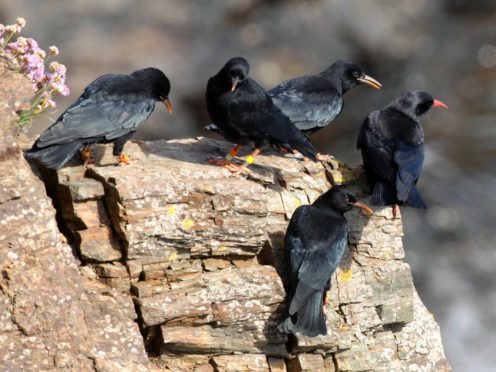
Crows living in large social groups are healthier than those with fewer social interactions, a study has suggested.
Researchers said it is possible that close social bonds reduce stress levels in the birds, making them less susceptible to parasites.
They say their findings challenge the commonly-held belief that animals in larger groups are less healthy as disease can spread more easily.
Findings of the study, led by Dr Claudia Wascher of Anglia Ruskin University, have been published this week in the journal Animal Behaviour.
Dr Wascher and her colleagues studied a population of captive carrion crows over a six-year period.
They monitored the behaviour of the birds in different sized groups and measured friendship by ranking them using a “sociality index”.
At the same time, they studied the crows’ droppings to measure for the presence of the gastrointestinal parasite coccidian oocyst, which can represent a health threat to birds.

Researchers found that crows with strong social bonds, living with more relatives, and in larger groups, excreted a significantly smaller proportion of droppings containing parasites than less sociable crows.
Dr Wascher, senior lecturer in biology, said: “Crows are a highly social bird and we found that crows with the strongest social bonds excreted fewer samples containing coccidian oocyst, which is a common parasite in birds.
“It is a commonly-held belief that animals in larger groups are less healthy, as illness spreads from individual to individual more easily.
“We also know from previous studies that aggressive social interactions can be stressful for birds and that, over time, chronic activation of the physiological stress response can dampen the immune system, which can make individuals more susceptible to parasites.
“Therefore the results from our six-year study, showing a correlation between sociability and health, are significant.
“It could be that having close social bonds reduces stress levels in crows, which in turn makes them less susceptible to parasites.
“It could also be that healthier crows are more sociable.
“However, as many of the birds we studied were socialising within captive family groups, dictated by the number of crows within that family, we believe that social bonds in general affect the health of crows, and not vice versa.”

Enjoy the convenience of having The Sunday Post delivered as a digital ePaper straight to your smartphone, tablet or computer.
Subscribe for only £5.49 a month and enjoy all the benefits of the printed paper as a digital replica.
Subscribe